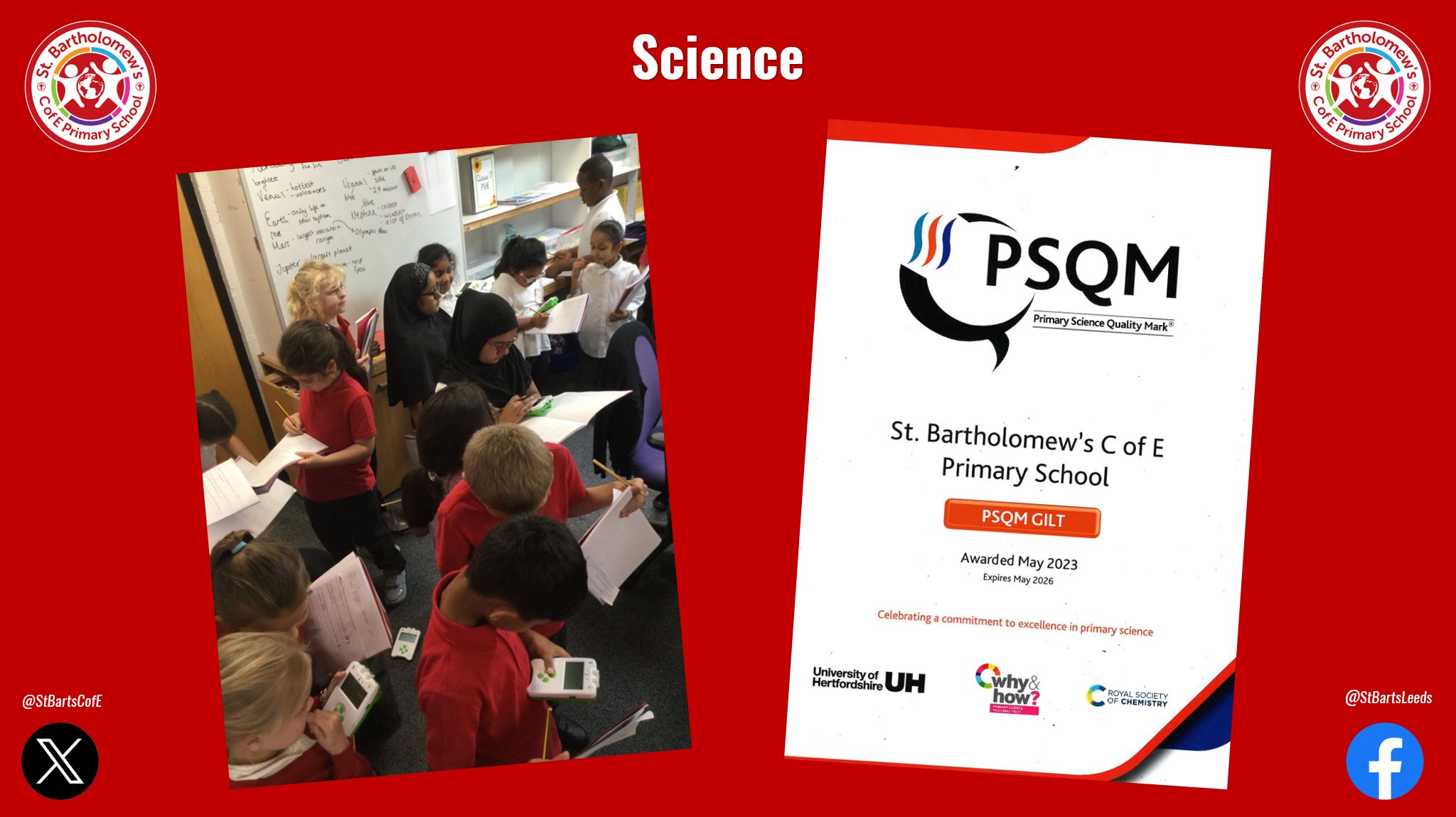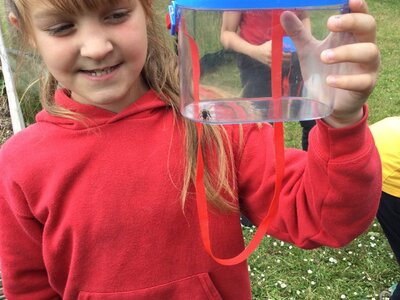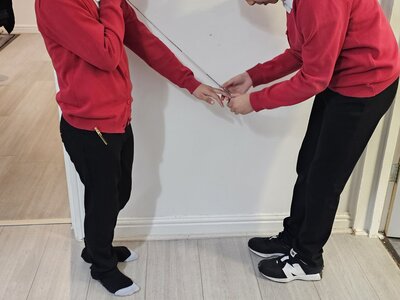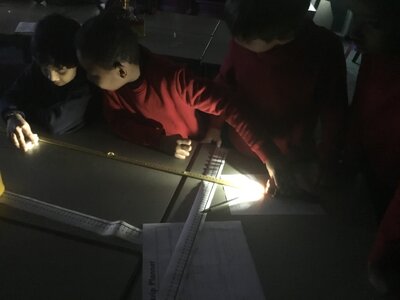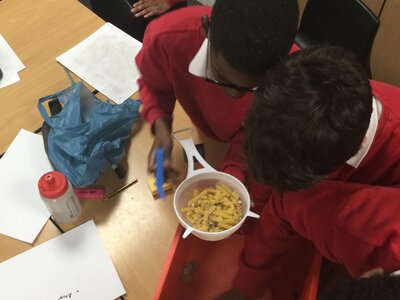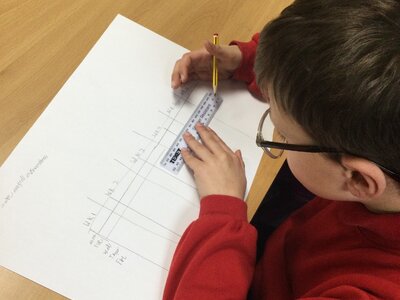Here at St Bart's we are proud of science in our school - we hold a national award PSQM (Primary Science Quality Mark) at GILT level. This means that science is embedded in everything we do.
Throughout school we ensure hands on learning through the five enquiry types where scientific skills are developed and built on from Nursery all the way to Year 6. We aim to take learning outdoors as much as possible.
Children learn about different science roles available in the world around them and how it fits in to their everyday lives. We love having visitors in to talk about their jobs in science and encourage all of the children to see themselves as mini scientists.
In our science club the children are in charge of developing and maintaining our brand-new wildlife site. We can't wait to see what they do with it!
Curriculum - Science - Key Documents
Curriculum - Science - Useful Links
PSTT (Primary Science Teaching Trust)
Curriculum - Science - Light Investigations
Today we planned and set up our own investigations in science. We investigated whether moving an object closer to the light source effects the size of a shadow made.
Curriculum - Science - Separating Materials
This week in science class 12 were given the challenge of separating materials the fastest! They used different sized sieves and tweezers to complete the mission.
Curriculum - Science - Weather Observations
Today we designed our own recording system to observe the weather over the next few weeks. We discussed the data we might like to record and how often we would do it. We then created our own charts.
Curriculum - Science - Materials & Scientists
Children in Class 13 have been researching scientists who have used the properties of materials to create new inventions. Working collaboratively, they used their oracy skills to turn their research into presentations, which they then performed to the rest of the class. Please watch the videos below to see how they got on.
Curriculum - Science - Grow to School
The weather forced us inside for our grow to school lesson today but Kat had some really fun activities for us in class, which we really enjoyed. First we played a game of bat and moth. Then we looked at and learned how to use garden tools safely. Next we planted some herb seeds and finally we identified some trees using a key.
Curriculum - Science - The Water Cycle
Today we learnt about the water cycle.We couldn’t believe we were drinking the same water as the dinosaurs! We developed our own space on a Minecraft platform to create our own version of the water cycle. We presented our creations to each other and explained the water cycle using scientific vocabulary.
Curriculum - Science - Gardening Tools
Class 7 had a fantastic time at our gardening session. We learnt about how bats use echolocation, how to handle our tools safely and how to identify different trees. We then finished the morning by making newspaper plant pots which we used to plant different herbs.
Curriculum - Science - The Deep Trip
The children had a fantastic time visiting The Deep in Hull, East Yorkshire—home to an incredible variety of marine life, including sharks, stingrays, the UK’s only pair of Green sawfish, hundreds of tropical reef fish, Loggerhead sea turtles, and a lively colony of Gentoo penguins. There was plenty to fascinate and engage visitors of all ages. During their visit, the children explored the attraction and took part in an educational workshop, “Our World’s Plastic Problem,” where they learned about the impact of plastic pollution on our oceans and what we can do to protect marine environments.
Curriculum - Science - Living Things
Year 2 have started their new topic 'Living things and their habitats' in Science. We went on a hunt around the playground looking for things that are living, used to be alive and never been alive.
Curriculum - Science - Data Loggers
Today in science we used data loggers to test how reflective different materials are. We worked in groups to make predictions and carefully test each material. After analysing our results we used what we had learned to design book bags with reflective strips.
Curriculum - Science - Materials & Scientists
This week in science the children have performed presentations on 4 scientist that influenced the world in the field of materials.
Curriculum - Science - Materials
This week, we started our topic about properties of materials. The children first had a go at feeling different items in bags, and they tried to decipher what the items were based on their properties. Then, we categorised properties and definitions, and finally the children conducted an experiment, where they tested different materials for hardness, flexibility, transparency, permeability and magnetism.
Curriculum - Science - Fossil Formation
This week we looked at how fossils are formed. We matched up pictures of dinosaurs and fossils that have been found. We used our observation and oracy skills to give reasons why we thought the fossils matched the pictures.
Curriculum - Science - Studying Friction
Class 12 have been studying friction with a variety of different carpets and toy cars. The class experimented by pushing toy cars with equal force on vinyl, ribbed carpet and underlay to determine which carpet has the least friction and therefore which one is the most suitable for a nursery floor.
Curriculum - Science - Water Resistance
This week, Class 16 were testing water resistance. In groups, the children made 2 different objects out of play dough - one which they thought would have more water resistance and one which they thought would have less water resistance against it. We used stop watches to time their results. Next, they used their results to inform, their ideas on making a boat, which they believed would move fastest through the water.
Curriculum - Science - National Coal Mining Museum Trip
Today we went to the Yorkshire coal mining museum to learn more about our science topic on rocks. We learnt about how coal was made as well as mudstone, sandstone, limestone and ironstone and what life was like for miners years ago. We also learnt that children the same age as us worked and died down the mines.
Curriculum - Science - Senses
Class 4 have been learning about senses this term. We practised using our noses to smell different things and talk about if we liked each smell.
Curriculum - Science - Conductors or Insulators
Year 4 have investigated conductors and insulators. They tested objects in a circuit to see if they conducted electricity. If the bulb lit up the material was a conductor. They talked about how materials that are insulators are very important to keep us safe.
Curriculum - Science - Rock Hunt
Today we went on a rock hunt in our local area. We looked for different natural and man-made rocks and their uses. We discussed why uses of types of rocks may have changed over time looking at things like industry, new inventions and cost.
Curriculum - Science - Different Circuits and Lights
In our science lesson this week we tested whether a lamp would light up when connected to different circuits. We made the circuits using light bulbs, wires and batteries and then explained why they did or did not light up.
Curriculum - Science - The Rock Cycle
Today we started our new science topic, rocks! We used starburst to show how the rock cycle works by turning sediments into bigger rocks using heat and pressure. We then identified different rocks using a key. Finally, we studied a single rock and observed its properties. We looked at colour, hardness, smoothness and permeability.
Curriculum - Science - Circuits and Electricity
Today we started our new topic in science. We are learning about electricity. We looked at what electricity is, new vocabulary and symbols used to draw circuits. We then played a game in pairs where we had to build our own circuits.
Curriculum - Science - Grow to School Project
This year we are lucky enough to be involved in the ‘Grow to school project’. We will be visited every half term by a grow leader and spend time developing our wildlife garden and growing vegetables. On our first visit, we learnt some of the different vegetable families and we readied our beds with the signs to show where we would grow each family. We began planting with onions, chard and garlic.
Curriculum - Science - Rain Gauges
Year 1 enjoyed making rain gauges to measure the rainfall. We will use these this year to measure how much rain there is in each season.
Curriculum - Science - Seasonal Changes
In Science we have been learning about the seasonal changes that take place in autumn. We went outside to look for evidence of these changes and found lots of different coloured leaves. We then made pictures to show what happens in autumn.
Curriculum - Science - Investigating a Question
Today we used our oracy skills to discuss how we could investigate a question. We then conducted a class investigation to test how strength of vibrations could effect volume.
Curriculum - Science - The Ear
Year 3 and year 4 have been investigating how the ear works and the names of its components. They also made different sized paper cones to use to investigate if they could hear music better with small, medium or large cones.
Curriculum - Science - The Solar System
This week Class 12 have been investigating if the solar system is heliocentric or geocentric. They discussed the evidence formed over a long time periods from 15 different scientists. We concluded that the solar system is heliocentric.
Curriculum - Science - Sound Hunting
Today we went on a sound hunt around school. We made predictions about the loudest and quietest places in school. Then we visited them and measured the volume with data loggers
Curriculum - Science - Leonids Work
Class 6 had an oracy lesson about art, discussing what they liked and disliked about Leonids work. They then wrote about it and drew a picture of their favourite work.
Curriculum - Science - Pitch
Year 4 had a fantastic time investigating pitch with musical instruments. We investigated pitch using different instruments and identified the patterns we found. We learnt that sound is a vibration and felt the vibrations of different instruments and tuning keys.
Curriculum - Science - Earth and Space
In our first lesson of Earth and Space, we stepped back thousands of years ago and looked at the evidence that scientists came up with to decipher whether the Earth was flat or a spherical body. The children were split into teams and had to become the scientists, and argue their points using their oracy skills.
Curriculum - Science - Living Things & Survival
Today in science class 8 thought about what living things need to survive. We then looked at what humans need to stay healthy and the different food groups. Children worked together to sort food packaging into food groups.
Curriculum - Science - Inheritance
This week, class 14 have orally discussed inheritance from parents to offspring. This resulted in a really healthy debate.
Curriculum - Science - Finches on The Galápagos Islands
Class 16 have been learning about the evolution of finches on the Galápagos Islands. We experimented with different beak types to empathise with the finches and understand why they evolved their beaks the way they did. We especially enjoyed learning about the blood sucking vampire finch.
Curriculum - Science - Wildlife Club
Today in wildlife club we played pest or pal to learn which creatures were useful to the gardener and which ones we needed to protect our garden against. Once we had played the game we went into our garden to try and find out whether we had pests or pals. We were pleased that we found woodlice, bees, spiders and centipedes. Our garden is full of pals!
Curriculum - Science - Skeletons
Today we developed our knowledge of human skeletons by playing ‘skeleton drive’ We had to roll the number we needed to collect the bones one by one. We were in a race against our opponents to create a complete skeleton.
.png)
